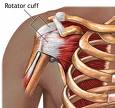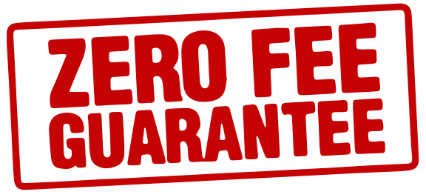A torn rotator cuff is a painful and sometimes debilitating injury that can severely limit a person's range of motion and make completing everyday tasks painful, if not impossible. Unfortunately, our Indianapolis car accident attorney adds, this type of shoulder tear is not an uncommon injury. In fact, each year, millions of people are diagnosed with a torn rotator cuff. The causes can be many, but one of the most misunderstood (or argued) causes is a car accident.
What Is a Rotator Cuff?
 The rotator cuff is the name given to the four muscles and tendons that surround your shoulder joint. Its main responsibility is to ensure the shoulder's ability to exhibit a wide range of motion. In fact, the shoulder has a wider range of motion than any other joint in your body. It's for this reason that a healthy rotator cuff is vital for allowing you to perform hundreds of tasks every day, including something as simple as lifting your arm.
The rotator cuff is the name given to the four muscles and tendons that surround your shoulder joint. Its main responsibility is to ensure the shoulder's ability to exhibit a wide range of motion. In fact, the shoulder has a wider range of motion than any other joint in your body. It's for this reason that a healthy rotator cuff is vital for allowing you to perform hundreds of tasks every day, including something as simple as lifting your arm.
What Happens When a Rotator Cuff Tears?
A tear occurs when one of the four tendons are injured, either from repetitive use (wear and tear), or a traumatic injury such as seen in our clients who have been involved in a forceful motor-vehicle wreck.
Insurance companies will often try to claim that a torn rotator cuff is a result of degenerative conditions or wear and tear, however, we have helped hundreds of clients across the country recover for a torn rotator cuff injury that was clearly a result of a car accident.
How Can a Car Accident Lead to a Torn Rotator Cuff?
Any type of car accident can lead to a tear in your rotator cuff, but the one most often associated with this type of injury is a "rear-end" collision.
Someone who is about to be rear-ended may look in their rearview mirror the instant before impact in response to the sound of screeching tires. At that moment, because they are expecting the collision, they tense up and brace their hands against the steering wheel. Because the shoulder is now in an unrelaxed state, it absorbs a large amount of force upon impact. An acute tear to the rotator cuff is an injury that is absolutely possible from this type of collision.
What Are the Signs of a Torn Rotator Cuff?
Your physician is the only one who can accurately diagnose a torn rotator cuff, and their findings will be very important to your injury claim; however, you may experience any of the following symptoms that could be a sign of a shoulder tear:
- Sudden and/or severe pain to the top or outer sides of the shoulder
- Radiating pain throughout the arm
- Limited motion
- Swelling
- Problems sleeping due to pressure placed on the shoulder
- Pverall weakening of the area
- A popping or clicking sound while moving your arm
How Does a Doctor Detect a Torn Rotator Cuff?
A doctor may use any number of methods to detect a torn rotator cuff. Usually, they will conduct one or more of the following:
- Interviewing you in regard to your past medical history
- Performing a physical examination of the area
- Taking x-rays of the area
What Treatment Is Available for a Torn Rotator Cuff?
The treatment for a rotator cuff tear depends on the severity, such as the size and depth of the tear, as well as the location of the tear. If the tear is mild, it's possible that you may simply be prescribed good old-fashioned rest or a home-based course of physical therapy you can do on your own. If the tear is more serious, as is seen in most of our clients, it may require more aggressive therapy and the possibility of surgery.
If the tear is small, you may undergo:
- Supervised physical therapy that involves stretching and strengthening exercises.
- Corticosteroid injections to temporarily reduce pain. (These injections cannot be done repeatedly due to a risk of further weakening the tendon.)
- Ultrasound (This will enhance topically applied medications.)
If the tear is larger, deeper, or not responding to traditional treatment, you may undergo one of three types of surgery:
Open Repair
If you require an Open Repair surgery, bone spurs will be removed from underneath the acromion. A client will often undergo open repair when the accident was especially severe and the tear is abnormally large or additional procedures are required to repair the shoulder.
Mini-Open Repair
A Mini-Open is a much smaller version of the Open Repair procedure. Whereas an Open Repair procedure may require an incision that is inches long, the Mini-Open Repair makes use of advanced technology and can usually be repaired through a 3-5 centimeter incision.
All-Arthroscopic Repair
The most advanced of surgery types is an arthroscopic procedure. If you are undergoing this type of surgery, your doctor will make use of a miniature camera (a type of endoscope), that he/she will insert into your shoulder joint. The images displayed by the camera is then shown on a video monitor, allowing your doctor to guide micro surgical instruments used to repair your shoulder.
Why Should I Contact an Attorney About My Torn Rotator Cuff Claim?
Relating your rotator cuff tear to your car accident can be extremely difficult. Because the majority of tears are caused by wear and tear, it's not uncommon for an insurance company to deny a person's claim and say that the car accident wasn't the cause. They will often say the cause is degenerative or due to pre-existing conditions.
If you didn't have shoulder pain before your accident, or you are experiencing pain that is much worse than what it was before the accident, it's critical that you contact an attorney for a free consultation. If you give a recorded statement or sign authorizations that allow the insurance company to dig into your medical history, you could damage your claim.
Keller & Keller has been helping people since 1936 and has handled tens of thousands of motor vehicle accidents all across the country. If you would like to speak with us about your torn rotator cuff injury claim, we'll offer you advice and answer all of your questions at absolutely no cost to you.













